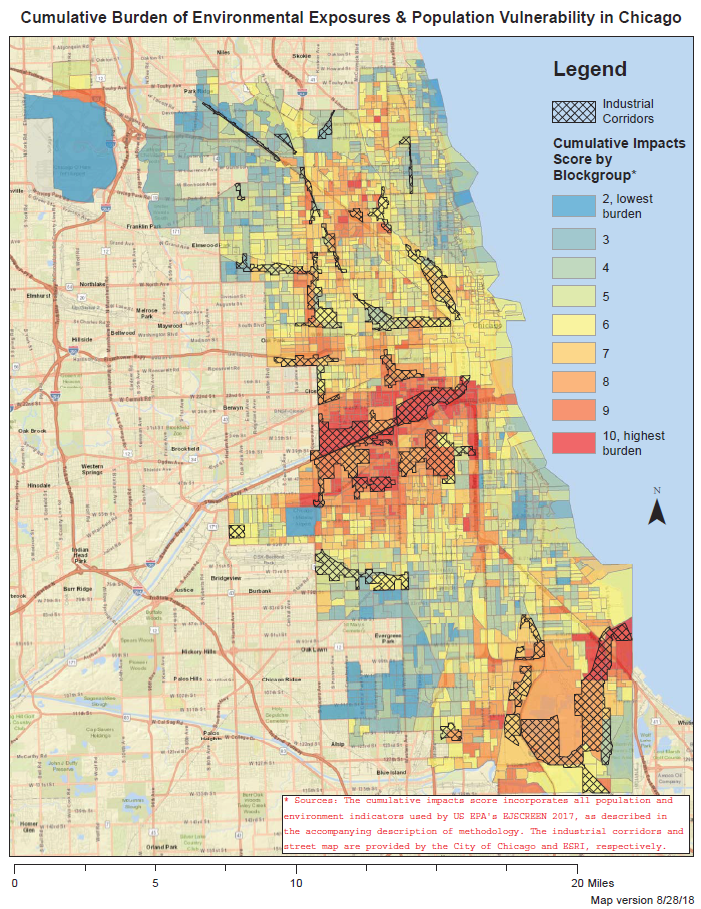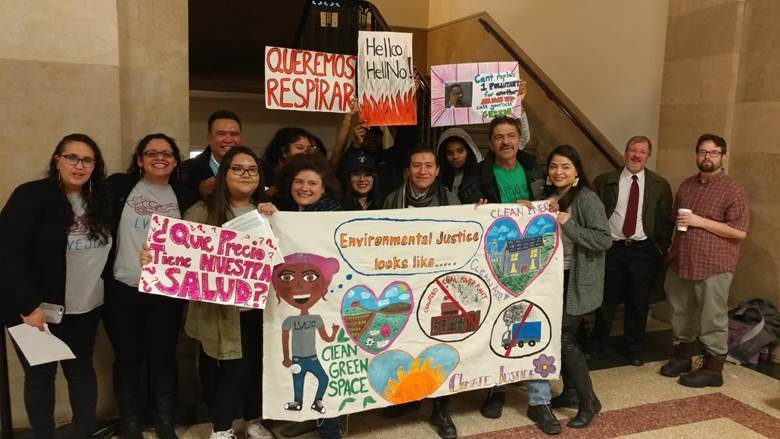What's the burden of toxic industries in Little Village?
The Chicago Community Trust is currently funding ten community-led riverfront projects through their Our Great Rivers grant. This piece is the seventh of a ten-part series highlighting these projects.
The Little Village Environmental Justice Organization (LVEJO) is known as one of the most powerful community voices for environmental justice in Chicago. The group started in the early '90s as a group of parents from La Villita concerned about the toxic emissions from the neighborhood’s dangerous proximity to factories.
In 2012, with LVEJO’s leadership, a coalition succeeded in closing the Fisk and Crawford coal power plants in Pilsen and Little Village. In 2013, the organization helped secure the conversion of the Celotex Superfund property into La Villita Park.
“The work that we are doing has not yet been done in Chicago, possibly because of the concern that it would create." —Kim Wasserman-Nieto, Executive Director, Little Village Environmental Justice Organization
Currently, LVEJO’s attention is on daylighting and addressing the burden of toxicity already faced by their neighborhood due to the industrial riverbank and barge traffic along the Chicago Sanitary and Ship Canal (the Southwestern portion of the Chicago River), and advocating for community concerns to be addressed in any new development in the neighborhood. They are looking to transform the area from one that burdens the community to a sustainable economic corridor that brings improved health and good jobs to the residents.
LVEJO’s action on the Corridor coincides with the City’s heightened interest in guiding future public and private investments along the Chicago River. In spring of 2016, Mayor Emmanuel introduced the Little Village Industrial Corridor as a section of interest in the City’s Industrial Modernization Initiative, a process that seeks to advance manufacturing and technology-oriented jobs while considering improvements to the built environment. Already, LVEJO’s advocacy has resulted in the process giving additional attention to the natural environment and human health concerns as well.
LVEJO and their partners are concerned with the negative health implications to the neighborhood due to competing environmental and economic/industrial priorities. For example, what is the risk to human health of creating more public spaces along the river if the waterways do not clean up the already polluted air and water while seeing increased investment in new, high-polluting businesses?
With funding from the Chicago Community Trust’s Our Great Rivers Grant and in partnership with the Natural Resources Defense Council (NDRC), LVEJO has begun community-led public health research to better understand the burden of the toxic facilities on the community.

NRDC
Cumulative Burden of Environmental Exposures & Population Vulnerability in Chicago. Click here to download the map. Click here to download the methods used to create this map.
LVEJO intends to increase public knowledge about the current environmental health burdens in Little Village by developing a series of tools that will educate the public and decision-makers about the environmental health burdens borne by this community. This may look similar to their Environmental Justice & Little Village Industrial Corridor map, which cites key struggles and victories in La Villita’s fight for environmental justice, as well as potential sites for revitalization and brownfields.
With these resources, LVEJO will not only educate the public on the health status of La Villita, but also use the environmental justice lens to better advocate for future environmental health, development, and investment in their community.
“The work that we are doing has not yet been done in Chicago, possibly because of the concern that it would create” Kim Wasserman-Nieto, the Executive Director of LVEJO, states. “One of our biggest challenges is that we are stepping into unknown territory. There is no infrastructure in Chicago (i.e. a Department of Environmental Health) that focuses on the environmental sustainability of our city.”

Moms Clean Air Force (Flickr)
The crew of Little Village Environmental Justice Organization and its allies at the press conference around the Crawford Coal Plant redevelopment plan
LVEJO intends to use data they collect to inform the Little Village Industrial Corridor process and to demand environmentally just alternatives to the proposed distribution center on the former Crawford site. “People are fighting for environmental justice! I am interested to see if the City is truly going to be sustainable for all," Wasserman said.
LVEJO recently released Guidelines for Future Planning and Development, which discusses the community’s top priorities related to planning and development, including community engagement, green spaces, recreation and health, economic development, labor justice, affordable housing and displacement, and more.
LVEJO and NRDC are also working in partnership with the Southeast Environmental Task Force, to explore similar issues in Southeast Chicago around public space and exposure to industrial toxins such as manganese and petroleum coke along the Calumet River Industrial Corridor and Lake Michigan.
-----------------
Hanna Udischas was recently a research assistant at MPC.